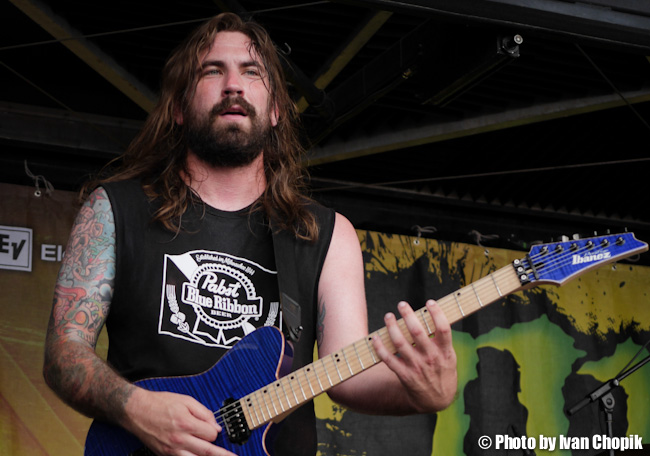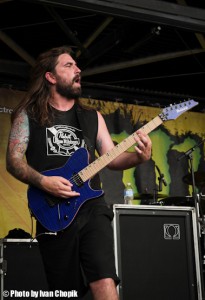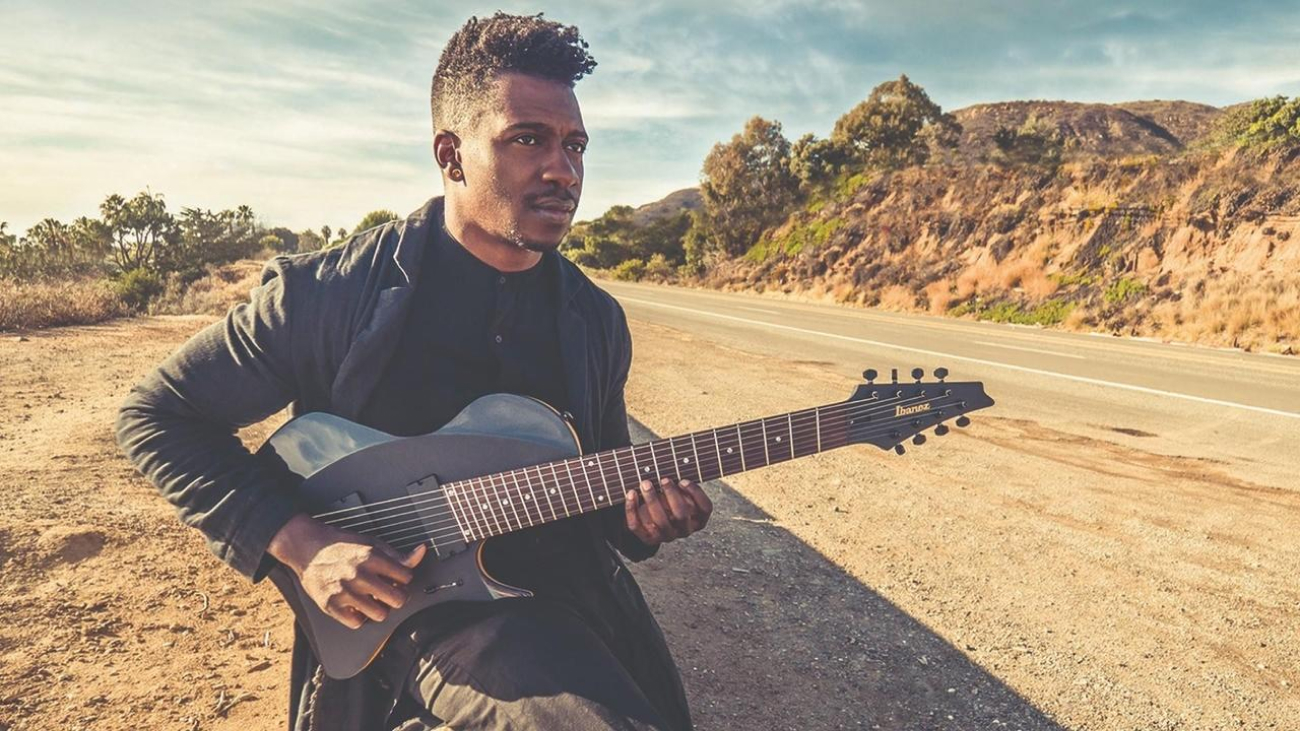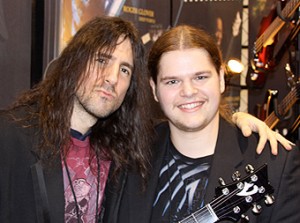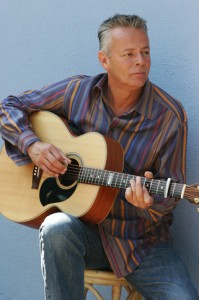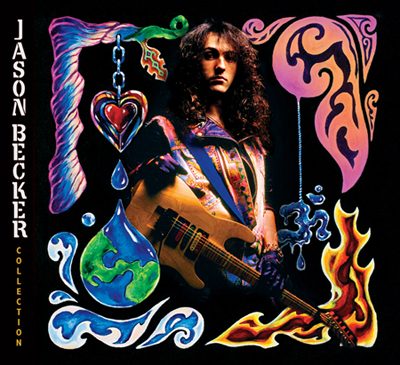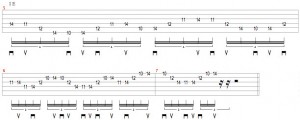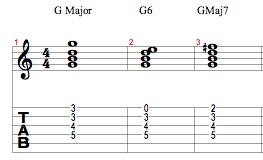In PART ONE of our interview, The Black Dahlia Murder’s Ryan Knight revealed details about the band’s latest album Everblack, his journey as a developing guitarist, and his love of fusing country music and death metal. Read on as Ryan opens up his gear rack and offers some advice to new bands:
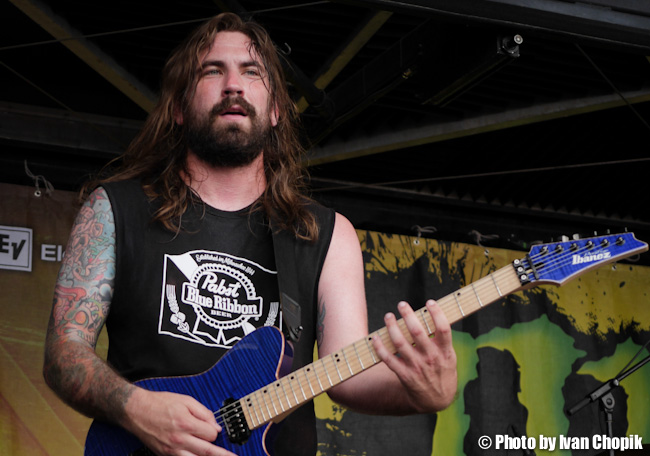
IC: Are there things that you’re listening to now that you’ve just come across? Who are some bands that you’ve recently discovered?
RK: Mahavishnu Orchestra is a band that I’ve kind of gotten into recently. I like Tribal Tech a lot. As far as metal stuff goes, I like Ghost. I don’t want to sound like I’m on the bandwagon, but I really do love them. I just got the new Darkane album for those of you into the Swedish metal and stuff like that. I’ve always liked their CD’s. I don’t know, man. I haven’t really been listening to a lot of bands lately.
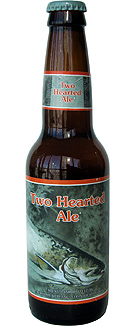
Two Hearted Ale
IC: I find that with a lot of touring metal musicians, they don’t spend as much time actually listening to heavy stuff in their off time.
RK: Yeah. I really don’t listen to much heavy stuff, honestly. I will every now and then, but it’s usually the stuff that I first got into when I was listening to heavy stuff. I don’t really know about too much newer stuff. I don’t know, I feel really weird… I like The Cardigans a lot and Depeche Mode. I find myself usually listening to more stuff like that – more mellow stuff.
IC: What’s a question you’ve never been asked before?
RK: Oh man, this is the hardest… this question!
IC: Give me something you’ve never brought up before in an interview. Could be a story, an epic tale of sorts, just anything…
RK: This isn’t very epic, but no one ever asks me about the type of beer that I like to drink.
IC: What’s your favorite beer?
RK: I generally like IPA’s. Stuff that Founders makes, Two Hearted Ale. I’m not too picky; I’ll drink pretty much any IPA. I’ll also drink Coors Lite and stuff like that too. That’s like pool beer, as I call it. It’s like hangout beer.
IC: Lawnmower beer.
RK: There you go. Lawnmower beer. That’s a good one. Hangout beer, barbecue beer, you know? I like that stuff too, so alright! [laughs]
IC: What do you do when you’re not playing guitar and making music?
RK: When I’m at home, I hang out with my daughter a lot. I teach guitar… but that’s still guitar playing. I go to baseball games when I can. I go to bars every now and then. I really don’t drink much when I’m at home, though. I’ve got other stuff to occupy me. Other stuff that I can’t think of right now, of course. I watch Netflix a lot.
IC: Which are your favorite shows?
RK: I usually just watch documentaries. But as far as like TV shows and stuff, I like Weeds, Dexter, Sons of Anarchy, The Walking Dead. I like Fresh Prince, that’s a classic. I also like to watch all the stuff that used to come on… I think it was TGIF, Urkle, Family Matters. I still like Home Improvement. [laughs] I like all that stuff.
| Click play above to watch part 2 of the video for this interview. |
IC: Gear-wise, what’s changed over the last few albums for you? What’s your rig like these days?
RK: Right when I joined Black Dahlia, the heads I was playing were Peavey 6505’s. On this tour, I actually just went back to a Mesa Single Rectifier; it’s like a 50-watt. I don’t know why I went back to that. It just seems easier for me to play on. I like how it sounds. A Maxon OD808 in the front; it’s always on. I think I have the OD9 now.
Since 2011, I’ve been using the TC Electronic G-Major 2 for delays and some of the songs with harmony parts. It’s got that intelligent pitch [for harmonizing in key]. That’s the main reason I have that. If I didn’t have any harmony parts, I would probably get rid of that and just use whatever delay pedal. I run it in the [amp’s effects] loop.
For guitars, I usually play the [Ibanez] RG550 sort of models. This one is an FR. I just started playing this. I guess some people out there don’t know that this guitar exists, but it does. It’s a production model guitar. I think it’s been around for like five years or something now.
IC: You don’t see that shape that often.
RK: Yeah. I like it, because the [Fender] Telecaster is, in fact, my favorite guitar and this guitar looks kind of like a Telecaster. They customized it out for me at the custom shop out there in California, so it’s got a flame maple top and basswood body. I used to play DiMarzio’s all the time, but I’ve been playing Seymour Duncan’s now for the past three years. I just kind of prefer them now and this is a ‘59 [neck pickup] and this is a SH-4 [bridge pickup]. My other guitar, it’s like an RG… it’s a custom shop model… I forget the model name I wanna compare it to. Anyway, it’s got a humbucker and two single coils. The single coil is a Hot Rails and it’s got a JB. It’s got a Rosewood fretboard. This one has a Maple fretboard and offset dots. I like really simple stuff.
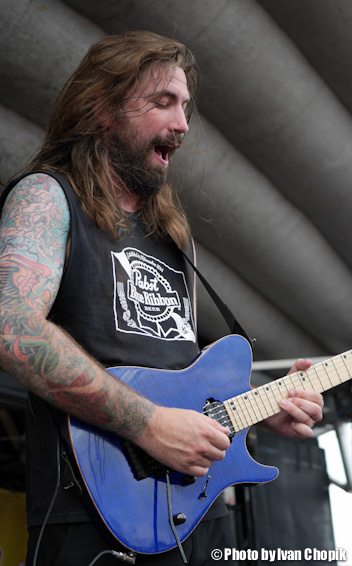
I can’t think of Adam’s last name, but he’s a really cool guy, though. He’s at Floyd Upgrades and he actually came out to the Philly show and upgraded [the locking nut] to titanium and he put this block in the back. It’s like a bigger block, it helps with sustain and it just makes it sound better. Just replacing this block actually does make this sound better – it’s crazy.
And then he put these coated springs in, which I don’t know enough about what that does, but it probably does something pretty cool. I’m eventually probably going to replace this [bridge] to all titanium stuff. He didn’t have the right stuff at the time. So anyway, this Floyd will eventually be a little bit upgraded. That’s what this guitar is. I like it.
IC: What’s a piece of advice you can give to people trying to get out on the road with their bands and trying to make it in the business?
RK: I’d say just work really hard. Try to be the best you can be at whatever you’re trying to do. If you want to be a lead guitar player, then work hard on that. If you want to be more of a songwriter… [then work hard on that.]
Then, I guess, just get out there and play. Join a band and book shows and try to play as many as you possibly can around your area. That’s how I sort of did it. You get to know people, and then one thing leads to another…
Do whatever you want to do. Try to do it as proficiently as you can, so that people will eventually take notice and you’ll get a job of some sort. If not, make your own band and go somewhere, you know?
IC: Looking back, is there anything in your career that if you had the wisdom that you have now, you would have approached differently?
RK: Well, I guess the whole spectrum of guitar playing. If I could look back now when I was fifteen, if I could have gone [differently] about learning guitar, I would have already been learning this stuff that my teacher started teaching me three or four years ago, when I was fifteen. If I would have learned that then… now, who knows?
But you can’t do anything about it. I pretty much don’t have any regrets about anything other than that. I would have approached guitar playing a little differently, but hey, whatever… I’m here and I’m still learning. You never quit learning on guitar – it’s endless. My only regret, I guess, is that I know I’ll never have enough time to actually learn and play and do everything I want to do.
IC: I think it goes for all of us to some degree or other.
RK: Yeah, for real.
[Special thanks to Ben Mayer for his excellent camera work and last minute help, and Josh Hofmann for his assistance with this video shoot.]



